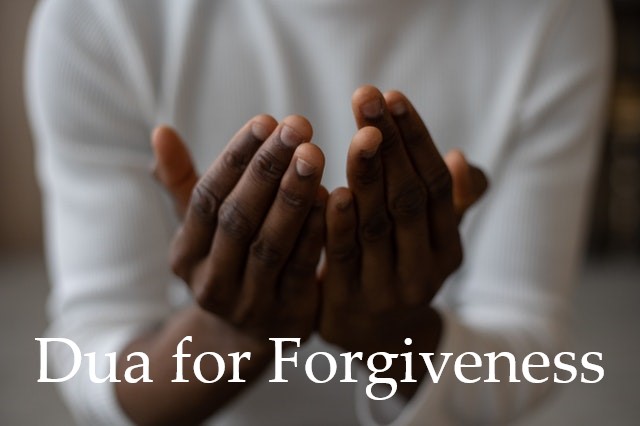Al-Ghafoor, The Most-Forgiving, is one of the many names that Allah the Almighty describes Himself by. Allah loves those who sincerely repent, which is why He reminds us of His forgiveness 98 times in the Quran. He says:
وَاِنِّىۡ لَـغَفَّارٌ لِّمَنۡ تَابَ وَاٰمَنَ وَعَمِلَ صَالِحًـا ثُمَّ اهۡتَدٰى
“But indeed, I am the Perpetual Forgiver of whoever repents and believes and does righteousness and then continues in guidance.” [Surah Taha 20: 82]
We all err on a daily basis, both consciously and unconsciously. It could be a hurtful word that was spoken thoughtlessly or a dire action that there seems to be no escape from. But whichever it is, Allah promises His mercy, provided that the repentance is sincere and that we do not repeat the behavior. Undoubtedly, the extent of Allah’s forgiveness is without bounds. Perhaps the best account of His forgiveness is demonstrated in the story of the man who committed ninety-nine murders that is narrated in Sahih Al-Bukhari.
From the tribe of Bani Israel was a man who had killed ninety-nine people. After the assassination of his last victim, the man finally began to feel remorse over his actions. So, he decided to set out to determine if Allah would forgive him for the grave sins he had committed.
During his journey he met with a learned man. He informed the learned man of his past and that he wished to seek Allah’s forgiveness and lead a reformed life. He asked, “I wonder if Allah would accept my repentance?”. The man (being a monk, but not a scholar) who could not fathom what he had heard, replied, “No, Allah would not forgive you”. Greatly distraught by this response, the man flew into a rage and killed him, making this man his hundredth victim.
The man once again set out on his journey with the hopes of finding someone who would assure him that Allah would indeed forgive him. He then came across a wise man – a scholar. He informed the wise man that he had killed one hundred people and enquired if Allah would forgive him if he repented. The wise man replied, “Of course you will be forgiven. So, hasten to repent.” He continued, “But, I have just one piece of advice for you— avoid the company of wicked people and associate with good people, for bad company leads one to sin.”
With tears in his eyes, the man sincerely repented to his Lord begging Him for His mercy. Then, heeding the advice of the wise man, he turned around and set off in pursuit of the village of righteous men to lead a life free from sin. But on his way to the village, death overtook him.
The angels of mercy and punishment arrived to claim the man’s soul. The angels of punishment stated that the man’s soul belonged to them as he led a sinful life. But the angels of mercy contended that the man repented to Allah sincerely and was resolved to lead a righteous life. They also pointed out that the man was on his way to the village of the righteous persons before which death had intercepted him.
To settle the dispute, Allah suggested that the angels measure the distance between the deceased and the villages. He proposed that if the man had died closer to the village of the righteous, he belonged to the angels of mercy; but, if he died closer to the village of the sinful, he belonged to the angels of punishment.
As the man had just commenced his journey not too long ago, he was unfortunately closer the village of the sinful. However, since the man had made sincere repentance to Allah prior to his death, Allah commanded the village of the righteous to be brought closer, and commanded that the village of the sinful to be pushed further away. Allah then ordered His angels to measure the distance. The angels found the man to be one span closer to the village of the righteous; hence, his soul was handed over to the angels of mercy. Such is the extent of Allah’s forgiveness.

Often times we feel that our sins are unforgivable. But we should always remember that Allah loves those who sincerely repent— seeking His repentance is among the highest forms of Ibadah. Of course, it is not simply sufficient to seek His repentance, but our remorse should be demonstrated in our actions as well just as the man who had murdered one hundred people. No sin is too large or too small for Allah— certainly, He forgives all sins. As He states in the Holy Quran:
قُلْ يَا عِبَادِيَ الَّذِينَ أَسْرَفُوا عَلَىٰ أَنْفُسِهِمْ لَا تَقْنَطُوا مِنْ رَحْمَةِ اللَّهِ ۚ إِنَّ اللَّهَ يَغْفِرُ الذُّنُوبَ جَمِيعًا ۚ إِنَّهُ هُوَ الْغَفُورُ الرَّحِيمُ
“O My servants who have transgressed against themselves [by sinning], do not despair of the mercy of Allah. Indeed, Allah forgives all sins. Indeed, it is He who is the Forgiving, the Merciful.”




